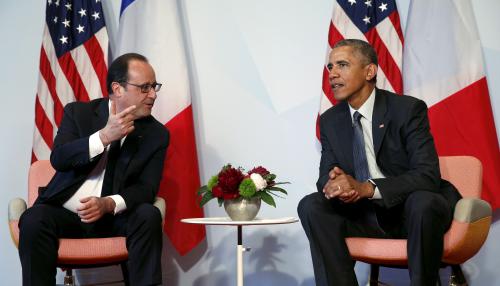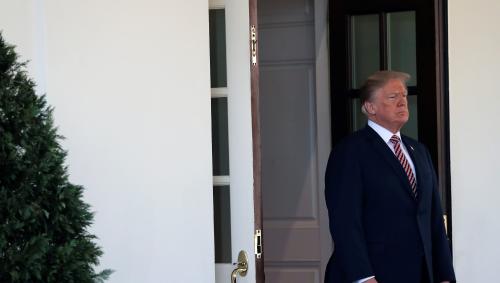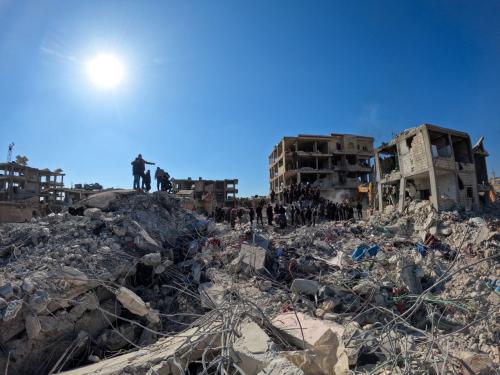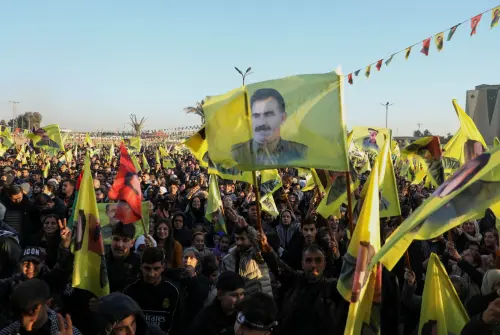What crossed President Trump’s mind when Bashar Assad launched a chemical weapons strike against civilians? Surely, like most of humanity, his first impulse was revulsion. Trump’s statements condemning the atrocity seemed sincere and genuine. It reminded me a little of his reaction to the Syrian refugee crisis, which erupted in August of 2015, when a three-year old Syrian boy named Alyan Kurdi washed up on a beach, sparking global outrage. Trump was already running an anti-immigration campaign, but he temporarily reversed himself on Syrian refugees because of “the unbelievable humanitarian situation.” “I hate the concept of” allowing refugees in, he told Bill O’Reilly, “but on a humanitarian basis, with what’s happening, you have to.” He would soon reverse himself again, of course, and adopt a harder line than ever. His empathy seemed to have an early expiration date.
It must also have dawned on President Trump this week that his words and actions matter and were not incidental to the crisis. Trump had repeatedly said he would not try to remove Assad, that he would not prioritize human rights, that his singular focus was ISIS, and that he would not act where American interests were not directly threatened. It would be America First. The most obvious explanation for why Assad used chemical weapons against civilians is that he did not think Trump would care. If Trump stuck to his old script, more attacks would surely follow.
If Trump stuck to his old script, more attacks would surely follow.
It is one thing to promise never to intervene in the abstract. It is quite another to be confronted with the reality that your choices are encouraging others to commit mass atrocities. Faced with this, Trump changed his position. President Obama had a similar change of mind and for similar reasons in 2012. Obama had strongly opposed intervention in Libya until Gadhafi’s forces were at the gates of Benghazi threatening to sack it. Obama too had a premonition of what was to come—the massacre of an entire city as he stood by. He reversed suddenly, acted against his instincts, and endorsed a no-fly zone. He did so because he was assured it would be relatively easy and limited. When he found out it was anything but, he felt duped. But he did act at the time.
The main takeaway is that any president will balk at letting mass atrocities happen on his watch when there is a low risk means of preventing an imminent catastrophe. Trump has shown that he is not an exception. The action he took was small and nearly identical to the “pinprick” strike Obama rejected in 2013. It may well succeed. Assad has no strategic interest in doubling down. He values Trump’s support or neutrality too much. He will probably take the hint and stop using chemical weapons, preferring instead to revert to conventional forms of mass murder. Everyone can then return to where they were before the attack. Trump can say he succeeded in deterring Assad. And, Assad and Putin can continue to use Trump for their own purposes.
The big question is whether this portends a general strategic shift for Trump. Will he now happily lead the liberal international order? That remains very unlikely. It is hardly surprising that Trump likes the idea of a once off strike that deters a mass atrocity. It is quite another to invest resources and political capital into an internationalist foreign policy.
The Brookings Institution is committed to quality, independence, and impact.
We are supported by a diverse array of funders. In line with our values and policies, each Brookings publication represents the sole views of its author(s).








Commentary
What the Syria strikes tell us about Trump’s foreign policy
April 7, 2017